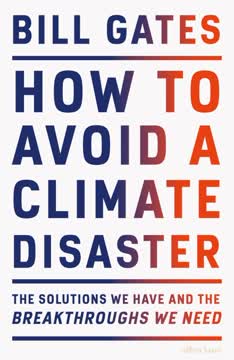Key Takeaways
1. AI ethics requires systematic risk identification and mitigation
AI doesn't just scale solutions—it also scales risk.
Ethical AI framework. Companies must develop a comprehensive ethical risk framework tailored to their industry. This framework should articulate ethical standards, identify stakeholders, establish governance structures, and outline processes for maintaining ethical practices. Key components include:
- Clear protocols for elevating ethical concerns
- Guidance for product managers on balancing competing ethical priorities
- Tools to evaluate trade-offs (e.g., explainability vs. accuracy)
Organizational awareness. Building a culture of ethical AI requires educating and empowering employees across the organization. This involves:
- Training on the company's ethical AI framework
- Encouraging employees to raise concerns
- Incentivizing ethical behavior through performance reviews and compensation
Ongoing monitoring. Ethical AI is not a one-time effort but requires continuous vigilance:
- Monitor AI system impacts after deployment
- Engage stakeholders to understand real-world effects
- Adjust practices based on new insights and emerging challenges
2. Virtual reality emerges as a powerful tool for soft skills training
Unlike traditional e-learning solutions, VR tools offer learners a truly immersive experience.
Immersive learning. Virtual reality creates highly engaging, memorable experiences for developing soft skills like communication, leadership, and customer service. Benefits include:
- Low-pressure environment for practicing high-stakes conversations
- Immediate feedback on performance
- Ability to simulate diverse scenarios and interactions
Practical applications. Companies are leveraging VR for various soft skills training:
- Customer service: Role-playing difficult customer interactions
- Presentation skills: Practicing and receiving feedback on delivery
- Employee evaluations: Assessing current skill levels and areas for improvement
Cost-effective solution. VR training can be more efficient and economical than traditional methods:
- Faster completion times compared to in-person or e-learning programs
- Reduced logistical hurdles and travel costs
- Scalable across large organizations
3. Germany leads digital health innovation with prescribable apps
"Prescribable applications" could transform health care.
Digital Healthcare Act. Germany's landmark legislation catalyzes the adoption of digital health tools:
- Formalizes "prescribable applications" (DiGA) including software and mobile apps
- Creates accelerated regulatory path for bringing digital health apps to market
- Mandates reimbursement by statutory health insurance providers
Benefits for stakeholders:
- Patients: Increased access to innovative digital health solutions
- Developers: Clear pathway to market and reimbursement
- Healthcare system: Evaluation of digital tools' effectiveness in real-world settings
Global implications. Germany's approach offers valuable lessons for other countries:
- Provides a model for balancing innovation with regulatory oversight
- Demonstrates potential for integrating digital tools into standard care
- Generates data on the real-world impact of digital health applications
4. Blockchain enhances supply chain transparency and efficiency
Blockchain can enhance trust, efficiency, and speed.
Supply chain transformation. Blockchain technology offers significant improvements in supply chain management:
- End-to-end traceability of products and components
- Increased efficiency and speed of transactions
- Enhanced coordination among supply chain partners
- Improved access to financing for suppliers
Key applications:
- Product authentication and recalls
- Real-time inventory tracking and management
- Automated payments and smart contracts
- Supply chain financing based on verified transactions
Implementation challenges. Successful blockchain adoption requires addressing:
- Governance mechanisms for determining system rules
- Data privacy and security concerns
- Integration with existing ERP systems
- Collaboration among multiple stakeholders
5. Brain-computer interfaces promise workplace transformation
Imagine preparing your next presentation using only your thoughts.
Emerging technology. Brain-computer interfaces (BCIs) are moving from medical applications to mainstream use, with potential workplace impacts:
- Monitoring employee attention and stress levels
- Enhancing cognitive performance through neurofeedback
- Controlling devices and software through thought
Ethical considerations. The use of BCIs in the workplace raises important questions:
- Privacy concerns regarding brain data collection and use
- Potential for discrimination based on cognitive metrics
- Risk of coercion or pressure to use BCIs
Future implications. As BCI technology advances, companies must prepare for:
- Developing clear policies on BCI use and data handling
- Addressing security risks associated with "brain hacking"
- Balancing potential productivity gains with ethical concerns
6. Quantum computing poised to revolutionize encryption and problem-solving
Unhackable encryption could be on the horizon.
Quantum advantage. Quantum computers leverage quantum physics to solve certain problems exponentially faster than classical computers:
- Simulating molecular interactions for drug discovery
- Optimizing complex logistics and supply chains
- Developing unbreakable encryption methods
Current state. While full-scale quantum computers are still years away, significant progress is being made:
- Small-scale quantum computers are operational
- Major tech companies and governments are investing heavily
- Quantum-resistant encryption standards are being developed
Preparing for the quantum future. Organizations should take steps now:
- Assess potential quantum use cases in their industry
- Develop quantum-safe cybersecurity strategies
- Build interdisciplinary teams with quantum expertise
7. Commercial space industry enters new era of private-sector leadership
Private space travel is just the beginning.
Paradigm shift. The space industry is transitioning from government-led to private-sector-driven:
- Companies like SpaceX are reducing launch costs and increasing access to space
- New business models emerge for space-based goods and services
- Private investment in space startups is growing rapidly
Emerging space economy. Opportunities are expanding beyond Earth-focused applications:
- Space tourism and private space stations
- In-space manufacturing and resource extraction
- Infrastructure development for future space settlements
Policy considerations. Governments must adapt to support commercial space development:
- Establish clear regulatory frameworks for space activities
- Balance national interests with international cooperation
- Encourage responsible and sustainable space practices
8. Silicon Valley faces shifting landscape and regulatory challenges
The era of the tech titans may be nearing an end.
Changing dynamics. Several factors are reshaping the tech industry landscape:
- Dominance of big tech giants stifling innovation
- Investor focus shifting from growth to profitability
- Increased regulatory scrutiny and public skepticism
- Growing emphasis on ethical and socially responsible practices
Emerging business models. Future success in tech may require:
- Slower but more sustainable growth strategies
- Greater focus on privacy and data protection
- Emphasis on "conscious capitalism" and stakeholder value
Regulatory outlook. Tech companies must prepare for potential government intervention:
- Antitrust actions to address market concentration
- Data privacy and content moderation regulations
- Taxation reforms to address global revenue shifting
9. Tech industry grapples with racial diversity and inclusion
You're constantly wondering, "How long can I last?"
Persistent challenges. The tech industry continues to struggle with racial underrepresentation:
- Low percentages of Black employees, especially in technical roles
- Limited venture capital funding for Black-founded startups
- Pervasive microaggressions and non-inclusive cultures
Personal experiences. Black tech professionals often face unique challenges:
- Feeling isolated as the only Black person in a team or department
- Pressure to code-switch or downplay cultural identity
- Encountering stereotypes and biased assumptions
Strategies for change. Improving diversity and inclusion requires multi-faceted efforts:
- Setting clear diversity goals and holding leaders accountable
- Implementing bias training and inclusive hiring practices
- Creating supportive networks and mentorship programs for underrepresented groups
- Addressing systemic barriers to advancement and retention
10. Social media platforms urged to embrace self-regulation
Social media companies should self-regulate. Now.
Growing concerns. Social media platforms face increasing scrutiny over their societal impact:
- Spread of misinformation and conspiracy theories
- Privacy violations and data breaches
- Potential for voter manipulation and election interference
Call for action. Proactive self-regulation can help address these issues:
- Developing clear content moderation policies
- Implementing stronger data protection measures
- Increasing transparency around algorithmic decision-making
Lessons from history. Other industries have successfully self-regulated to avoid heavy-handed government intervention:
- Movie and video game rating systems
- Television advertising standards
- Airline reservation system fairness rules
11. Green software development crucial for tech sustainability
Beware digital technologies that worsen environmental problems.
Hidden environmental costs. Software development and usage can have significant energy implications:
- AI model training consuming massive computational resources
- Blockchain networks requiring substantial energy for maintenance
- Data centers projected to account for 8% of global electricity use by 2030
Strategies for green software:
- Set clear sustainability goals and metrics for software projects
- Optimize algorithms and code for energy efficiency
- Leverage cloud computing and serverless architectures
- Implement data compression and deduplication techniques
Broader impact. Developing green software practices can:
- Help companies meet ESG targets
- Attract environmentally conscious talent
- Drive innovation in energy-efficient computing
Last updated:
Review Summary
The Year in Tech 2022 receives mixed reviews, with an average rating of 3.55 out of 5. Readers appreciate its overview of emerging technologies and thought-provoking ideas, covering topics like ethical AI, blockchain, and space travel. Some find it accessible and informative, while others criticize its superficial treatment of complex subjects. The book's forward-looking approach is both praised and questioned. Reviewers note its value for staying updated on tech trends but highlight inconsistencies in depth and relevance across chapters.
Similar Books










Download PDF
Download EPUB
.epub digital book format is ideal for reading ebooks on phones, tablets, and e-readers.














